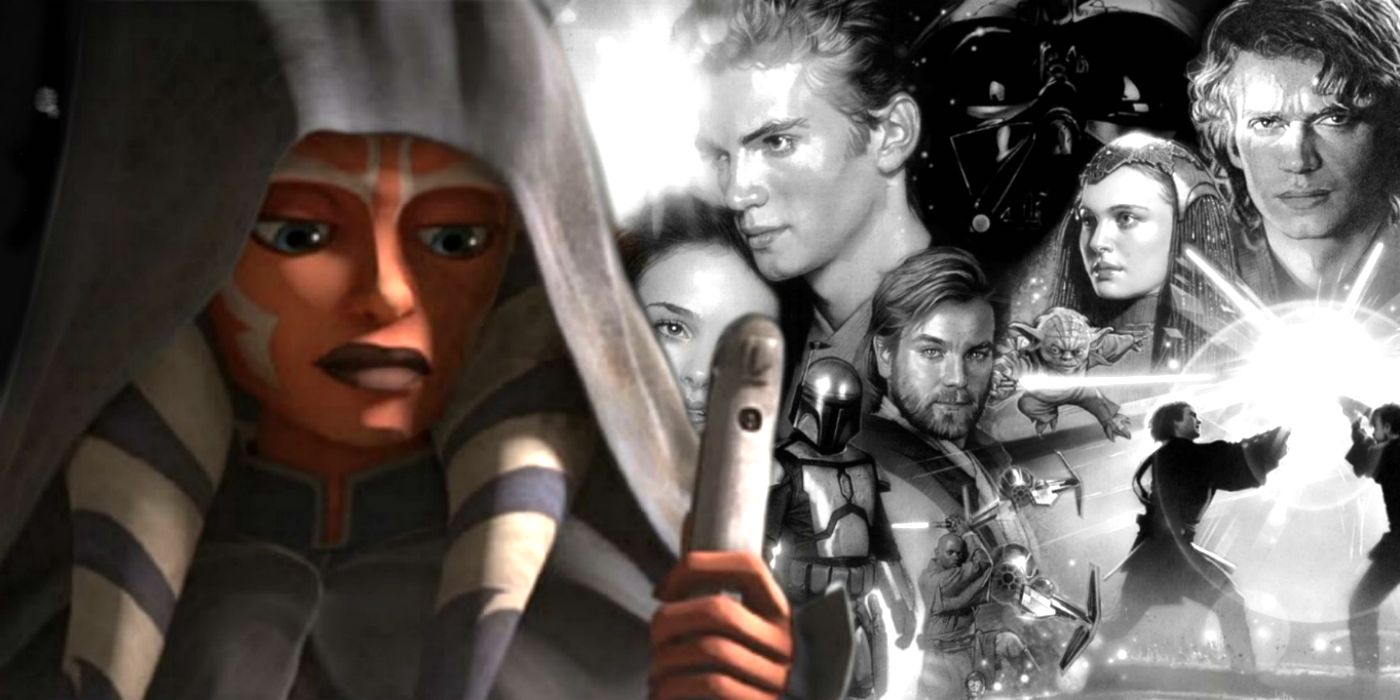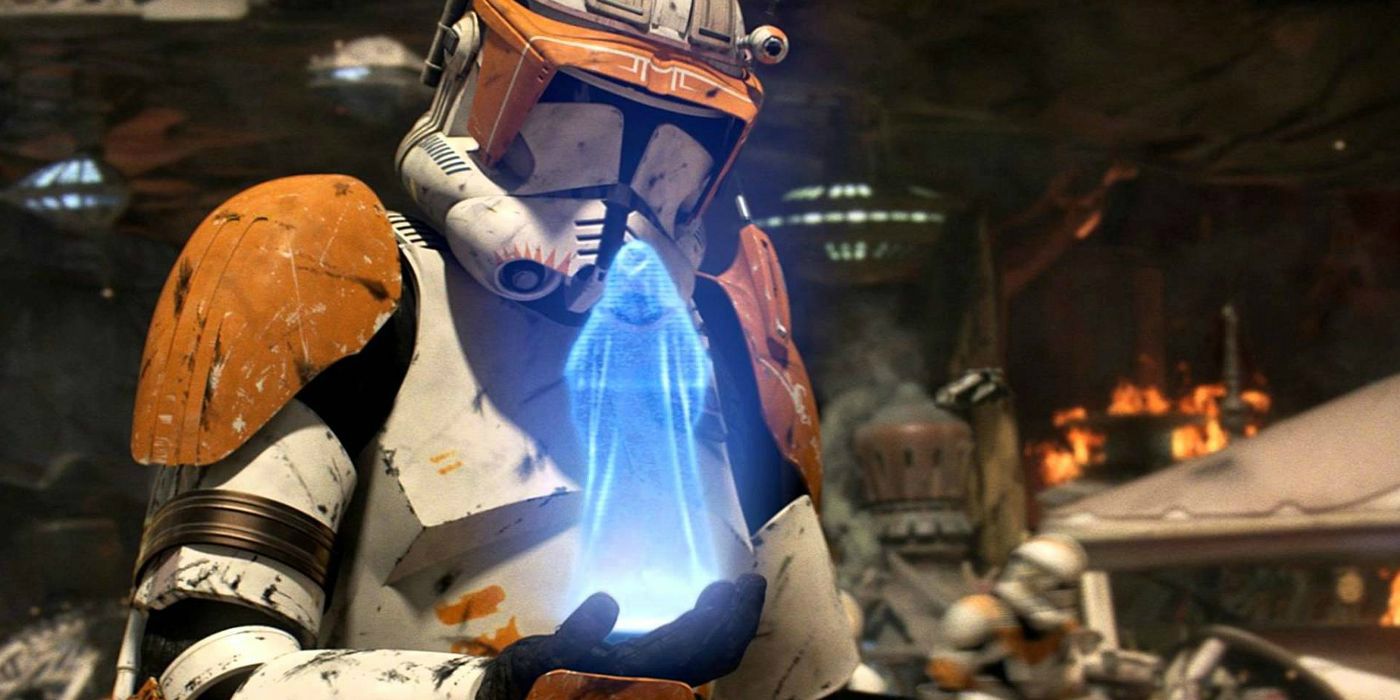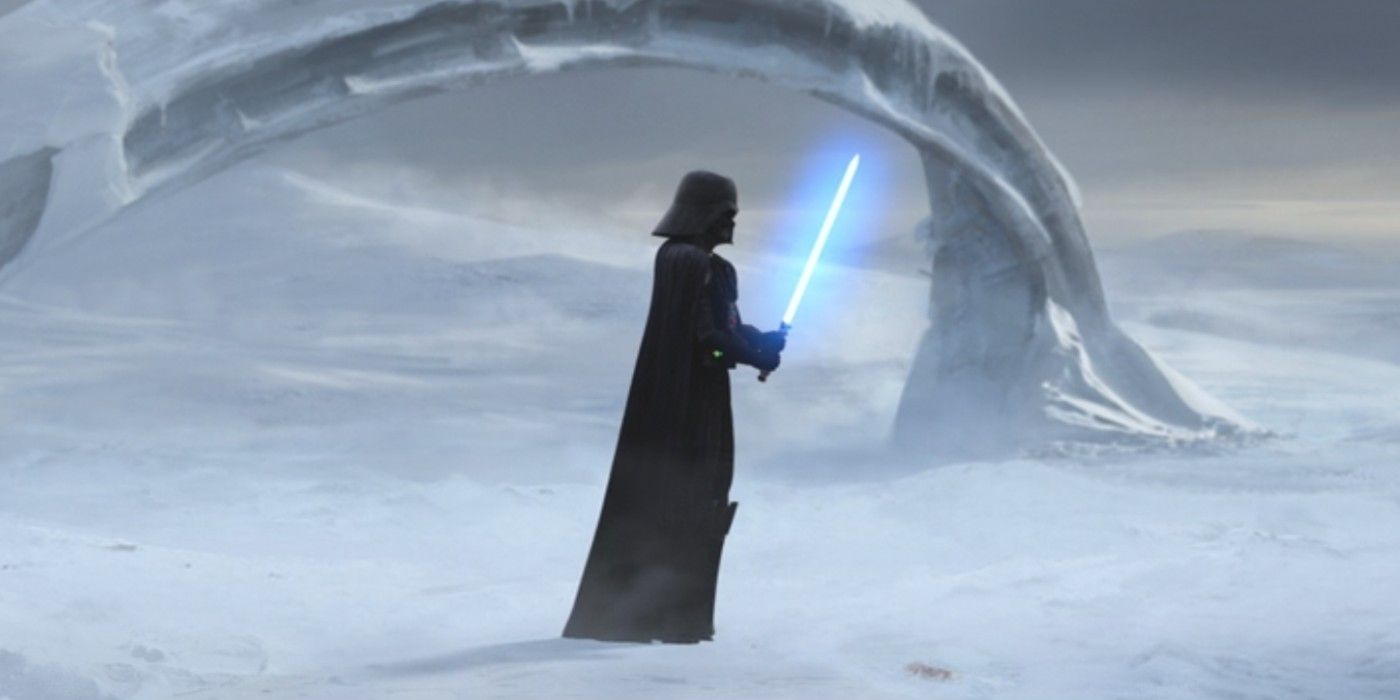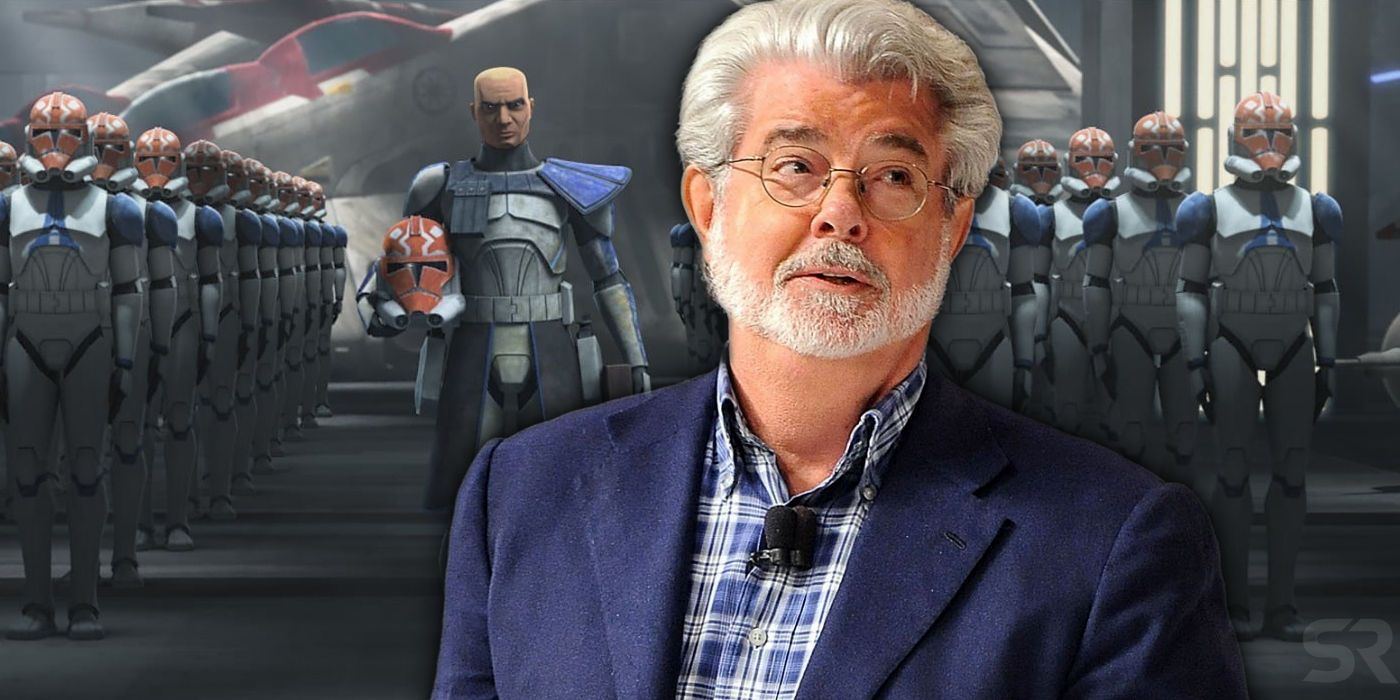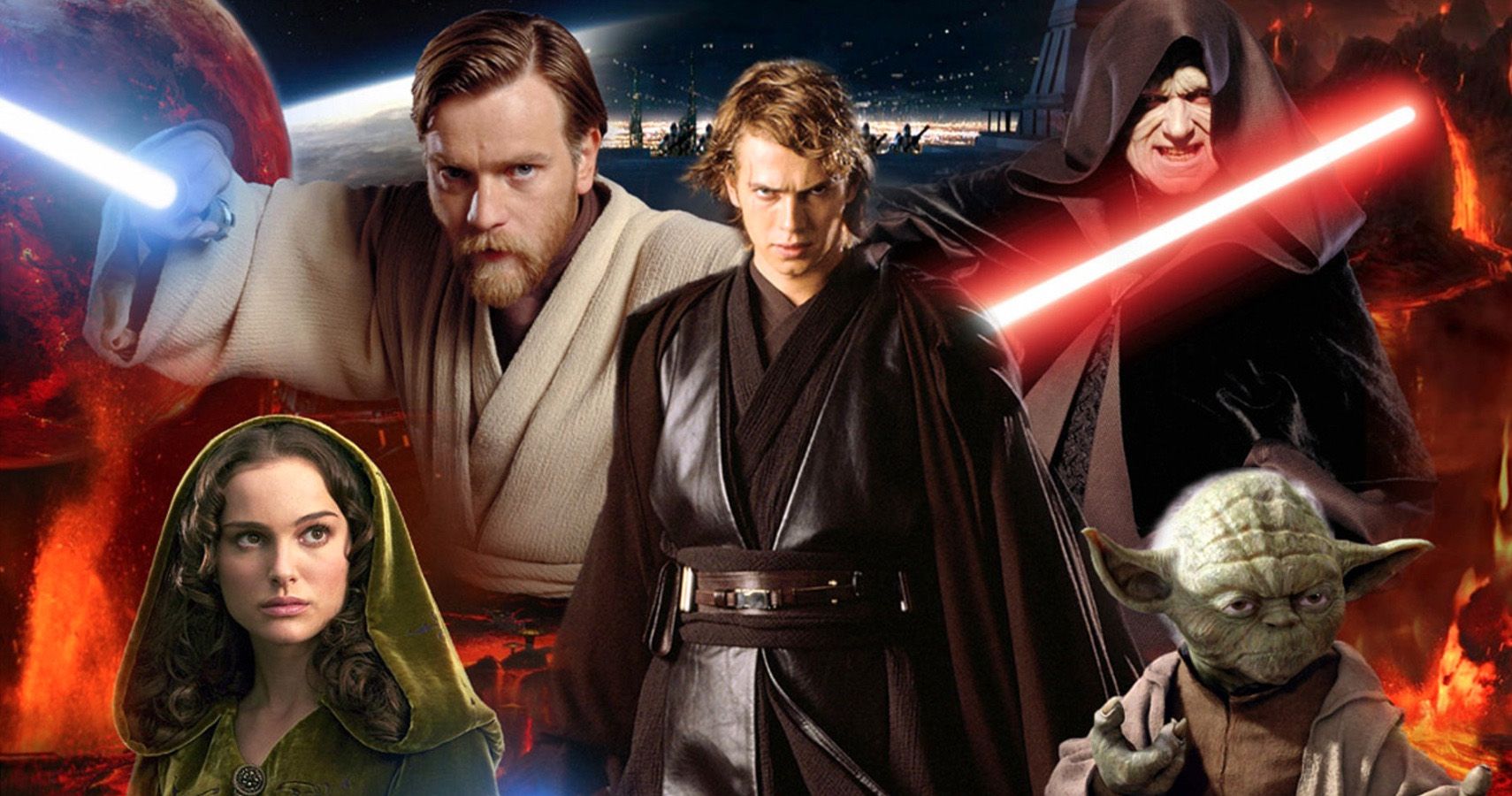Star Wars: The Clone Wars' closing episodes complete the story of the Star Wars prequels, retooling many of its most important plot points. The animated series built a reputation for itself on expanding the trilogy in every way it could. Characters and worlds that would never get the spotlight on the big screen also had the chance to shine, with some becoming fan favorites. Although it began 3 years after Star Wars: Episode III- Revenge of The Sith hit theaters, it retroactively made it and its predecessors more well-rounded than they could on their own.
On August 10, 2008, the catastrophic Clone Wars movie arrived in cinemas, giving fans a taste of what they could expect from the upcoming Cartoon Network program. They were not happy with the final product, and neither were critics, panning it for its low-stakes story and inability to live up to previous Star Wars installments. The series pressed on with production and aired its first episode that October, proving it was better suited for the small screen. It gained in popularity from there, amassing an impressive following for its in-depth elaboration on its source material.
Initially canceled in 2013, Clone Wars devotees were annoyed with the decision and urged Disney to finish off the story. They answered their cries, and the last season began airing on Disney+ in February 2020, promising 12 episodes to bring the show full circle. As it approached the end of the Clone Wars themselves, it stuck to its roots by enhancing the narrative the movies set up. Its final episodes contributed to plot lines such as Order 66 and the establishment of the Galactic Empire, giving fans thrilling new insight into the prequels.
Clone Wars Ends The Prequels' Order 66 Storyline
From the day it began, The Clone Wars had an end goal of catching up to Revenge of the Sith in the timeline. In doing so, it would inevitably deal with Order 66, the genocidal command given by Darth Sidious that compells all clones to eliminate their Jedi generals and their allies for supposed treason. It was depicted in the films but got reduced to a brief montage of several other light side users such as Plo Koon and Aayla Secura meeting their demise. The show made those Jedi, and clones, individuals, making Order 66 much more heartbreaking to watch.
While the prequel Jedi got more expansion throughout The Clone Wars, a handful of quick scenes foreshadowed their Order 66 fate. Even the likes of Obi-Wan Kenobi and Yoda are absent from this take on the now infamous scene. Instead, Ahsoka Tano and Captain Rex, two of the program's original characters, were the focal point of the event. Since they appear in Star Wars Rebels, which is set years after the fall of the Republic, their survival is a given. However, up to this point, it had not been shown on-screen, so the details were widely unknown. Their perspective was the last untold piece of the Order 66 storyline, bringing it to a conclusive end.
Clone Wars Completes Anakin's Darth Vader Transformation
Much like Order 66, The Clone Wars' endgame for Anakin Skywalker, becoming Darth Vader, was inevitable from the start. Given that this was one of the central story beats of the prequel trilogy, those films covered his dark descent thoroughly. His emotional nature and personal attachments were vital to his arc in Star Wars: Episode II- Attack of the Clones and Revenge of The Sith. He conflicted with the Jedi Council because of those traits, aligning with Darth Sidious as a result. The animated series doubles down on this concept, making sense of his corruption.
The Clone Wars completes Anakin's journey, ending with him suiting up as Darth Vader. He mourns the faked death of Ahsoka and Rex before moving on to his new life in the Empire. The movies never depict his grieving for them because they didn't exist when Revenge of the Sith came out in 2005, but those two were all he had left after losing Obi-Wan and Padme in the prequels. No one would know that, had it not been for The Clone Wars, which provided that extra layer to his character. The finale of season 7 closed the book on that life, beginning his new one as a Sith. The context of both mediums working together makes Anakin's story much more tragic.
Clone Wars Is The End Of George Lucas' Star Wars
Aside from story elements, The Clone Wars is the end of an era in Star Wars' real-life history. George Lucas, the mastermind behind the franchise, had his hands on the show for years. It was his passion project, and deep down was what he always wanted Star Wars to be. He is responsible for the first 6 seasons, along with his protege Dave Filoni, and their massive crew. His goal was to flesh out the world his prequels established, as the runtime of movies limits such exploration. He made the most of it, elaborating on his brainchild from episode to episode.
Seasons 7 and 8 were well underway when Disney purchased Star Wars from Lucas in 2012. A few of these ideas made it into the final product when they revived the series years later. The Clone Wars is the last work of Star Wars media with Lucas' fingerprints on it. Even though it wasn't his sole responsibility, it was the finale of the narrative he devoted so much time to create. Thus, the end of his contributions, and the sequel trilogy, will usher in a new age for the Star Wars franchise.
Clone Wars Made The Star Wars Prequels Better
Fans and critics alike scrutinized the Star Wars prequels ruthlessly upon release, with the long list of complaints resulting in Lucas stepping back from directing any more. They had their supporters too, but the vast majority did not come around on them until quite recently. While nostalgia plays a role, a much stronger influence is the popularity of The Clone Wars. The episodic format allowed Lucas' galaxy to breathe and do more with the ideas presented in the prequels. In hindsight, the series made the movies much better than they were on their own.
The Clone Wars is not an essential viewing to understand the prequel trilogy's narrative. However, it does clarify and enrich it, taking the story in new directions, and giving background characters multiple dimensions. Worlds like Christophsis and Anaxes were irrelevant in the tunnel-visioned movies. In that same vein, Jedi, such as Kit Fisto and Ki-Adi Mundi, had no chance at substantial development on the big screen. The clones were humanized, going from mindless drones to real people with feelings, names, and personalities. Without The Clone Wars, none of that would be possible, which would come to the detriment of the films.
On its own, The Clone Wars is an action-packed thrill ride with rich stories and characters. It offered up a fresh account of the Star Wars galaxy in small yet satisfying doses. At the same time, its biggest strength came from how it played off of the prequel trilogy. Season 7 overlapped with the events of Revenge of The Sith, making both better for it in the long run. The final episode of The Clone Wars came and went, wrapping up the story it started nearly 12 years ago. In doing so, it also laid the era of George Lucas' prequels to rest.

